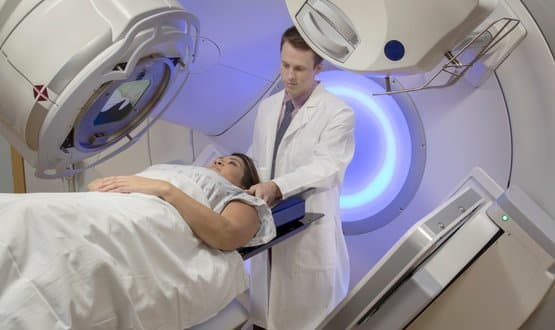A new multi-million pound research network, led by Cancer Research UK, will explore how artificial intelligence can improve radiotherapy treatments.
The £56million Cancer Research UK RadNet network marks the charity’s largest ever investment in radiotherapy research and aims to accelerate the developments of advanced treatments through technologies.
Through artificial intelligence (AI), Cancer Research UK hopes to design personalised treatment plans which are guided by data from patient scans.
The technology could improve the accuracy with which doctors deliver radiotherapy and provide new treatment options for patients whose tumours were once thought too risky to target with radiation, the charity said.
Michelle Mitchell, chief executive of Cancer Research UK, said: “Radiotherapy is a cornerstone of cancer medicine, with around three in 10 patients receiving it as part of their primary treatment.
“The launch of our network marks a new era of radiotherapy research in the UK. Scientists will combine advances in our understanding of cancer biology with cutting-edge technology to make this treatment more precise and effective than ever before.”
The network will unite seven centres of excellence across the country, including the Universities of Cambridge, Glasgow, Leeds, Manchester and Oxford, the Cancer Research UK City of London Centre and The Institute of Cancer Research, London in partnership with The Royal Marsden NHS Foundation Trust.
The centres will spearhead the development of new techniques for delivering radiotherapy and investigate new radiotherapy-drug combinations, including immunotherapies.
Scientists will also focus on reducing the long-term side effects associated with the treatment.
Dr Adrian Crellin, Cancer Research UK trustee and former vice-president of the Royal College of Radiologists, added: “I’ve seen first-hand how successful radiotherapy can be for patients that I treat, but it’s been frustrating to see the UK lagging behind other countries when it comes to prioritising research into this vital treatment.
“Cancer Research UK’s investment will overhaul radiotherapy research in the UK to bring the next generation of treatments to patients sooner.”
More than 130,000 patients are treated with radiotherapy on the NHS each year.
Some £13 million has been allocated to form new research groups and fund additional PhD students in Manchester, London and Cambridge. The network will also promote collaboration between diverse scientific fields, with a share of £4 million available to all centres for joint research projects, conferences and secondments between locations.
The charity is investing heavily in research into how technology can improve cancer screening, diagnosis and treatment. In October it announced the International Alliance for Cancer Early Detection (ACED), which also aims to develop radical new strategies for detecting the disease at its earliest stage using robotics and AI.

